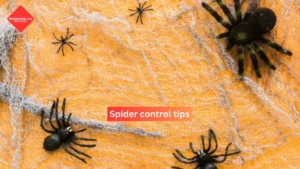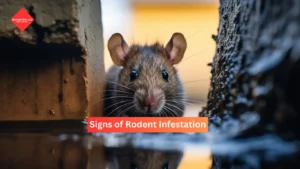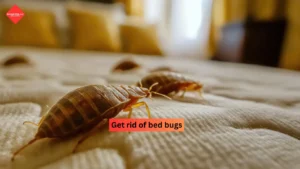Spiders are a common sight in many households. While they are essential in controlling other pests, their presence can still cause discomfort for many homeowners. Whether you’re dealing with a sudden spider invasion or want to prevent them from appearing in the first place, following effective spider control tips from Bugnation can help you keep your home free of these creepy crawlers.
Why Spiders Come into Your Home
Understanding why spiders invade homes is the first step in controlling them. Spiders usually enter homes in search of food, water, or shelter. If your home provides an ideal environment—like dark corners, plenty of insects, and quiet spaces—they are likely to move in.
How to Identify Spider Activity in Your Home
Before jumping to solutions, it’s important to identify the signs of spider activity. Here are some clues:
- Webs: Different spiders create different types of webs. Look for cobwebs in corners, ceilings, and behind furniture.
- Sightings: Spotting a spider or two is the most obvious sign.
- Egg Sacs: These small, round sacs are found in webs and can release dozens of baby spiders if left unchecked.
- Insects: If your home has a high insect population, it will likely attract spiders.

Spider Control Tips for a Spider-Free Home
1. Declutter Your Living Spaces
Spiders love hiding in cluttered areas. To minimize their hiding spots:
- Organize storage spaces, especially basements, attics, and garages.
- Keep clothes, shoes, and other items off the floor.
- Use airtight containers to store items you don’t frequently use.
2. Seal Entry Points
Prevent spiders from entering your home by sealing off gaps and cracks.
- Inspect windows, doors, and walls for any holes or crevices.
- Use caulk to seal cracks and weather stripping for gaps around doors and windows.
- Install fine mesh screens on windows and vents.
3. Keep Your Home Clean
A clean home is less appealing to spiders. Focus on these cleaning habits:
- Regularly vacuum corners, baseboards, and behind furniture.
- Dust frequently to remove cobwebs and prevent spiders from settling in.
- Take out the trash often to avoid attracting insects, which are a food source for spiders.
4. Manage Outdoor Areas
Your yard can also attract spiders if it’s not well-maintained.
- Trim shrubs and trees to keep branches away from your house.
- Keep firewood, rocks, and debris away from the home’s foundation.
- Use outdoor lighting sparingly since lights can attract insects, which in turn attract spiders.
Natural Remedies to Control Spiders
If you prefer natural solutions, these methods can help:
1. Essential Oils
Spiders dislike the strong smell of certain essential oils.
- Mix a few drops of peppermint, tea tree, or eucalyptus oil with water and spray it around entry points, windows, and baseboards.
2. Vinegar Spray
White vinegar is another effective spider-repellent.
- Mix equal parts vinegar and water in a spray bottle and apply it in areas where spiders are commonly seen.
3. Citrus Peels
Spiders are not fond of citrus scents.
- Rub citrus peels (like lemon or orange) on windowsills and door frames to deter them.
4. Diatomaceous Earth
This natural powder is safe for humans but deadly to spiders.
- Sprinkle it in areas where spiders are active. It works by dehydrating them.
Professional Spider Control Options
If natural remedies and DIY methods don’t solve the problem, consider seeking professional help. Pest control services use advanced techniques to handle spider infestations. They can:
- Identify spider species to determine the best treatment.
- Apply safe and effective insecticides.
- Provide ongoing maintenance plans to prevent future infestations.
Preventive Measures for Long-Term Spider Control
Keeping spiders out of your home is an ongoing process. Here are some long-term preventive measures:
1. Use Spider Traps
Sticky traps can be placed in areas where spiders are commonly seen. They help monitor activity and reduce their numbers.
2. Maintain Proper Lighting
Use yellow or sodium vapor lights outdoors. These attract fewer insects, reducing the food source for spiders.

3. Reduce Humidity
Spiders thrive in moist environments. Use dehumidifiers to keep your home dry, especially in basements and bathrooms.
4. Inspect Items Before Bringing Them Indoors
Spiders can hitch a ride on plants, firewood, or outdoor furniture. Check these items before bringing them into your home.
Are Spiders Dangerous?
Most spiders are harmless and prefer to avoid humans. However, some species, like black widows or brown recluses, can pose health risks with their bites. If you suspect a spider bite, seek medical attention immediately.
When to Call for Help
If you notice a large number of spiders in your home despite following these tips, it’s time to contact a pest control professional. They can provide tailored solutions to address your specific spider problem.
Final Thought:
Spiders may be beneficial in controlling other pests, but they don’t belong inside your home. By following these spider control tips from Bugnation, you can create an environment that is less inviting to them. From regular cleaning and sealing entry points to using natural remedies and professional services, there are plenty of ways to keep creepy crawlers at bay.







